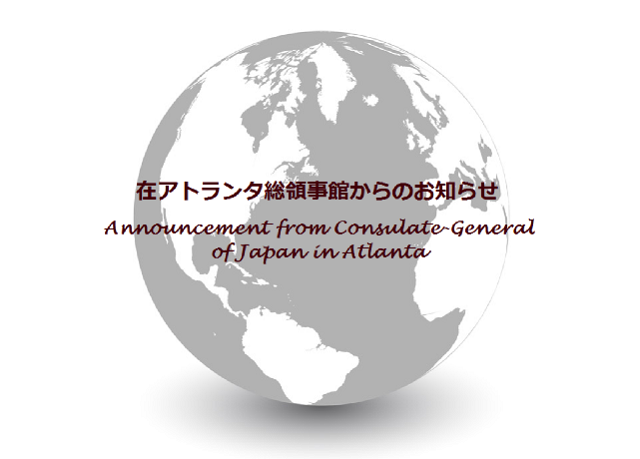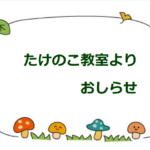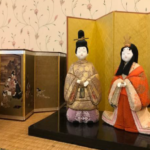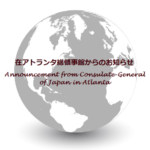4月も各地で日本に関連したさまざまなイベントが目白押しです!

Vol.114
April 2019
/////////////////////////////////////////////////////////////////////////////////////////////////////////////////////////////

Screening: “Flavor of Green Tea Over Rice”, Yasujiro Ozu (Durham, NC)
邦画上映会 in Durham, NC
”Flavor of Green Tea over Rice ” 《お茶漬けの味 》1952年公開映画
April 1, 2019 7:00 pm
Rubenstein Arts Center, Film Theatre
2020 Campus Drive
Durham, NC 27705
Film Screening:
“Flavor of Green Tea Over Rice”
(Yasujirô Ozu, 1952, 116 min, Japan, Japanese with English subtitles, B&W, DCP)
One of the ineffably lovely domestic sagas made by Yasujiro Ozu at the height of his mastery, “Flavor of Green Tea over Rice” is a sublimely piercing portrait of a marriage coming quietly undone. Secrets and deceptions strain the already tenuous relationship between a childless, middle-aged couple as her city-bred sophistication bumps up against his small-town simplicity, and a generational sea change-in the form of their headstrong, thoroughly modern niece-sweeps into their household. The director’s abiding concern with the intricacies of family dynamics receives one of its most spirited treatments, enlivened by a wry, tender humor and buoyant expansiveness that moves the action from the home into the baseball stadiums, pachinko parlors, and ramen shops of postwar Tokyo.
“Yasujiro Ozu’s delicate melodramas… avoid any sense of cliché in their restrained, sometimes painfully subtle study of family relationships.” David Kehr, Chicago Reader
“Exquisite… very funny and very moving.” – Geoff Andrew, Time Out (London)
/////////////////////////////////////////////////////////////////////////////////////////////////////////////////////////////

Irmo Cherry Blossom Festival (Irmo, SC)
サウスカロライナにて、桜祭りのお知らせ(4/1~14 日まで開催)
April 1-14, 2019
1249 Lexington Ave
Irmo, South Carolina 29063
The Irmo Cherry Blossom Festival seeks to enhance the lives of our citizens through the appreciation, understanding, and enjoyment of nature.
/////////////////////////////////////////////////////////////////////////////////////////////////////////////////////////////
Can Japan Save the Liberal Economic Order in the Asia Pacific: Geoeconomic Strategy of a Mature Developmental State (Chapel Hill, NC)
April 5, 2019 12:00 – 1:00 pm
Hamilton Hall, Room 271
102 Emerson Dr
Chapel Hill, NC 27514
Once attacked for having protectionist and mercantilist economy, Japan is now the champion of liberal economic order that led the successful conclusion of the TPP-11 after the US withdrawal from the agreement. How did Japan transform, and can Japan lead liberal economic order in the Asia Pacific?
Saori N. Katada is a Professor at School of International Relations and the Director of the Center for International Studies (CIS) at University of Southern California. She is a co-author of two books: The BRICS and Collective Financial Statecraft (Oxford University Press, 2017), and Taming Japan’s Deflation: The Debate over Unconventional Monetary Policy (Cornell University Press, 2018). Her single-authored book Banking on Stability: Japan and the Cross-Pacific Dynamics of International Financial Crisis Management (University of Michigan Press, 2001) received Masayoshi Ohira Memorial Book Award. She has also published six edited and co-edited books and numerous articles on the subjects of trade, financial and monetary cooperation in East Asia as well as Japanese foreign aid. Her current project is on Japan’s foreign economic policy and East Asian regionalism. For her research on regionalism, she was recently awarded Asia Studies Fellow at the East-West Center in Washington, Japan Foundation Research Grant and National Endowment for the Humanities Fellowship. She has her Ph.D. from the University of North Carolina at Chapel Hill (Political Science) in 1994, and B.A. from Hitotsubashi University (Tokyo). Before joining USC, she served as a researcher at the World Bank in Washington D.C., and as International Program officer at the UNDP in Mexico City.
/////////////////////////////////////////////////////////////////////////////////////////////////////////////////////////////
NashiCon (Columbia, SC)
コロンビア、サウスカロライナにて、アニメコンベンション開催
April 5-7, 2019
Columbia Metropolitan Convention Center
1101 Lincoln St
Columbia, SC 29201
Started in 2008 on the University of South Carolina campus with less than 40 staff members and over 200 attendees, NashiCon is the oldest anime convention in South Carolina. Join us for our twelfth year in 2019 from April 5th – April 7th in the Columbia Metropolitan Convention Center in downtown Columbia, SC!
/////////////////////////////////////////////////////////////////////////////////////////////////////////////////////////////

Film as Racial Interstice: Temporalizing Film in 1920s Global Modernity (Chapel Hill, NC
April 9, 2019 12:30 – 2:00 pm
FedEx Global Education Center #3009
301 Pittsboro St.
Chapel Hill, NC 27599
In the early twentieth century, the anthropological function of film was carried out on the mimetic dimension of the gesture. Everywhere, from South America to East Asia, intellectuals and theorists addressed the increasing importance of the movies for the transnational transformation of embodied attitudes for modernization, usually highlighting the female body, which became a framework whereby the history of the present could be outlined as desire. Film carried the gestures necessary for modernization. Focusing on the writings by the Japanese modernist Tanizaki Jun’ichiro and avant-gardist Murayama Tomoyoshi, this talk will look into some theories written in and around the 1920s, which conveyed a fascination and dissatisfaction with the medium of film, in order to think the racialized temporality of the female Asian body—a notion that included and excluded the Japanese body. Taking into consideration the circulation of the idea of modernizing as “whitening,” in light of debates happening in post-slavery Brazil on the Asian body, I will argue that the dissatisfaction with film reveals a temporal inflection to a racial theory of spectatorship. The Asian or “yellow” female body functioned as a temporal figure of the interstice: at once a disputed waiting device for becoming white, in its global functioning, while also revealing the limits of cinema and of racialized social reproduction.
André Keiji Kunigami (PhD, Cornell University) is a Carolina Postdoctoral Fellow in the Department of Romance Studies. Keiji’s work deals with questions of film and aesthetic theory, perception, and peripheral avant-gardes of the early twentieth century, in their intercrossing with scientific and political discourses. He is currently working on his first book manuscript, in which he examines the different ways that film produced a particular temporal understanding of the body, in places outside the so-called Western spaces in the 1920s and 1930s, focusing on Brazil and Japan.
/////////////////////////////////////////////////////////////////////////////////////////////////////////////////////////////

Hoshizaki America Company Tour (Peachtree City, GA)
ホシザキ・アメリカ (業務用厨房機器メーカー)社内見学のお誘い in ジョージア州
April 9, 2019 10:30 am
Hoshizaki America
618 Highway 74 South
Peachtree City, GA 30269
Hoshizaki is a global leader in the design, manufacturing, and marketing of equipment for the foodservice industry, including Ice Machines & Refrigeration.
Over the years, Hoshizaki Electric has manufactured and sold a variety of products to include stoves, refrigerators, vending machines, water purifiers, servers and dispensers, ice-makers, and refrigerated show cases.
Members: $15.00
Non-Members: $20.00
Tour participants are limited to 20.
/////////////////////////////////////////////////////////////////////////////////////////////////////////////////////////////

Revolution and Counter-Revolution in Japan’s High Growth Era
(Durham, NC)
April 11, 2019 3:00 – 4:00 pm
Rubenstein Library Carpenter Room 249
411 Chapel Dr
Durham, NC 27705
Nick Kapur (Assistant Professor of History, Rutgers University) is a historian of modern Japan and East Asia, with an emphasis on transnational and comparative perspectives. His research examines the intersections between political economy, culture, and international relations. He also has research interests in environmental history, gender history, and literature and film. An expert on postwar Japan, Professor Kapur also has expertise on wartime Japan and its empire leading up to, during, and after World War II.
/////////////////////////////////////////////////////////////////////////////////////////////////////////////////////////////
Yayoi Kusama: Narcissus Gardens (Atlanta, GA)
April 12, 2019 – February 17, 2020 9:00 am – 5:00 pm
Atlanta Botanical Gardens
1345 Piedmont Ave NE
Atlanta, GA 30309
Narcissus Garden is a signature work of contemporary art created by Japanese artist Yayoi Kusama. Narcissus Garden was first presented in 1966, when Kusama staged an unofficial installation and performance at the 33rd Venice Biennale. The silver spheres, originally made from plastic, were installed on the lawn in front of the Italian Pavilion, reflecting the landscape of the exhibition grounds. Kusama herself stood among them, barefoot and dressed in a gold kimono, alongside yard signs inscribed with the words “Narcissus Garden, Kusama” and “Your Narcissism for Sale.”
The installation is site-specific and made up of approximately 1,400 stainless steel spheres carefully arranged by staff from Kusama’s studio in Japan. These spheres can be viewed in their current location at the Atlanta Botanical Garden from the Canopy Walk, and along many of the trails leading into and out of Storza Woods.
The Narcissus Garden installation is a joint effort between the Atlanta Botanical Garden and The High Museum, which hosts Yayoi Kusama: Infinity Mirrors through Feb. 17. Narcissus Garden will remain on-view in Storza Woods through Spring.
Yayoi Kusama
Narcissus Garden, 1966-present
1400 stainless steel spheres
overall dimensions vary by installation
Each sphere 11 7/8 in.
Collection of the Artist.
/////////////////////////////////////////////////////////////////////////////////////////////////////////////////////////////
Japanese Tea Tasting at O-CHA (Greenville, SC)
緑茶、ほうじ茶など、お茶のテイスティング in グリーンヴィル、SC
April 15, 2019 7:00 – 9:00 pm
O-Cha Tea Bar
300 River St, Ste 122
Greenville, SC 29601
We hope you will join the Japan-America Association of South Carolina at O-Cha Tea Bar in Greenville for this fun evening sampling teas from around the world with an assortment of homemade snacks. Seating is limited for this special event, so please register early. It is expected to sell out.
Register on Eventbrite OR register on Facebook.
$15 for JAASC members
$20 for non-members
$75 to become a JAASC member and attend Tea Tasting
Here is a tentative list of teas we will be tasting!
- Gyokuro: a luxury shade-grown Japanese green tea.
- Hojicha: a roasted Japanese green tea.
- Ice Wine White Tea: a delicate white tea flavored with hints of sweet frozen grapes.
- Rose Black Tea: a deep black tea from Sri Lanka blended with delicate rose petals.
- Matcha: Traditional ceremonial-grade ground Tencha tea whisked into a delicious green tea.
- Lavender Rooibos: a herbal tea grown in South Africa, caffeine free and scented with rose hips and lavender flowers.
/////////////////////////////////////////////////////////////////////////////////////////////////////////////////////////////

Waste and Well-being in Postwar Japan with Eiko Siniawer
(Chapel Hill, NC)
April 17, 2019 5:30 – 6:30 pm
FedEx Global Education Center #3009
301 Pittsboro St.
Chapel Hill, NC 27599
In this lecture, Professor Eiko Maruko Siniawer will examine how ideas about waste and wastefulness have shifted in postwar Japan, from the mid-1940s through the present day. Discussions of what constituted a waste of time, stuff, and resources, she will show, reflected a changing if persistent search in daily life for meaning, value, and well-being in a financially affluent and mass consumerist Japan.
Eiko Maruko Siniawer is Professor of History at Williams College. She is the author of Ruffians, Yakuza, Nationalists: The Violent Politics of Modern Japan, 1860-1960, which explores the relationship between political violence and democracy through an examination of how the ruffianism of the professionally violent became embedded in the practice of modern Japanese politics. Her most recent book is Waste: Consuming Postwar Japan, which traces how waste—in terms of stuff, possessions, time, money, and resources—have been thought about in Japan from the mid-1940s to the present. The book illustrates how changing ideas about waste and wastefulness reveal a fundamental tension in Japan’s postwar experience between the desire for the privileges of middle-class lifestyles made possible by affluence
/////////////////////////////////////////////////////////////////////////////////////////////////////////////////////////////





/////////////////////////////////////////////////////////////////////////////////////////////////////////////////////////////
The Consulate General of Japan in Atlanta is an overseas establisment of the Government of Japan. The main function of our office is to protect Japanese nationals and economic interests, provide consular services and cultural exchange. There are 18 Japanese diplomatic missions in the United States. The jurisdiction of our office in Atlanta is Alabama, Georgia, North Carolina, and South Carolina.
Consulate General of Japan in Atlanta
Phipps Tower, Suite 850
3438 Peachtree Road
Atlanta, GA 30326
Email: info@aa.mofa.go.jp
Phone: 404-240-4300
Fax: 404-240-4311

















